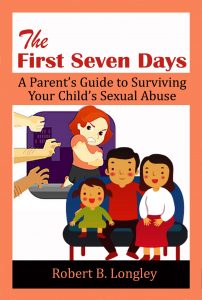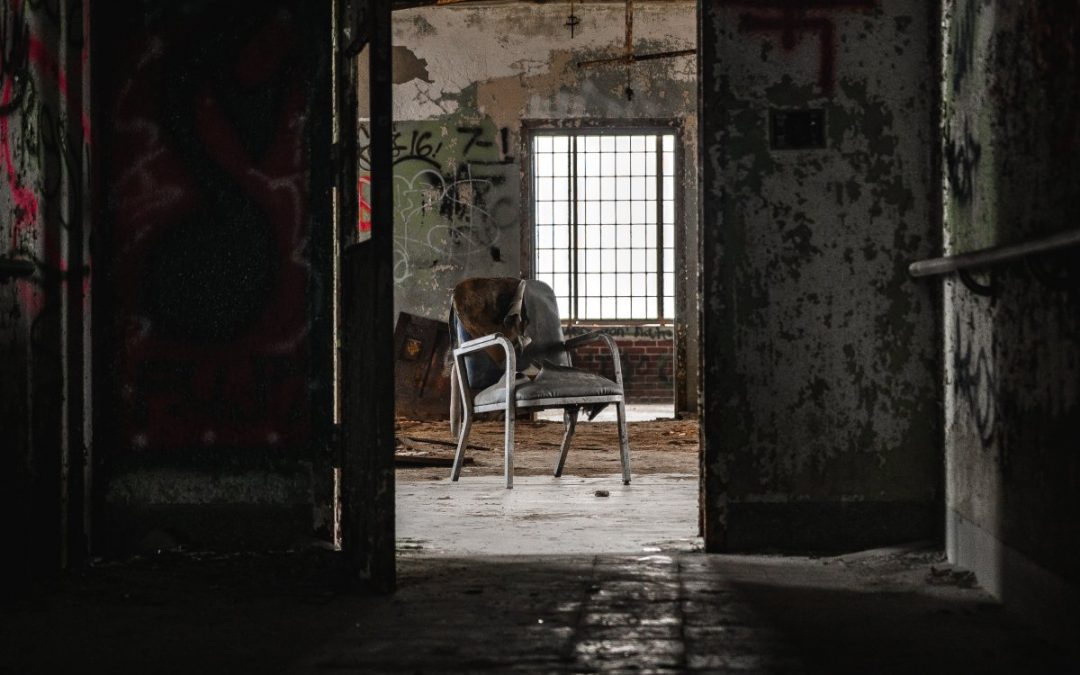
Parenting
Most parents have thought about what they would do with 5 minutes in a room alone with their child’s abuser. I know I have played that scenario more than a few times. Thankfully for all concerned most people don’t act on it. Occasionally someone makes the news for taking care of the problem themselves. Ultimately they generally don’t feel better – assuming they don’t get arrested in the process. People generally feel cheated that they don’t get the opportunity, but it is really for the best. (If it’s any consolation, sex offenders suffer more than their share of accidents. Being transferred between facilities and in transit to and from court can result in a variety of injuries. Prison is it’s own set of hazards.)
I occasionally speak to groups of parents who had recently experienced disclosure. The first question they often ask is, “how did you keep from killing him?”. It’s probably the one thing people want to know most when their child is sexually abused. You want to do something and you want to have some control over the situation that makes you feel better. But for the most part you can’t.
If you are thinking through that 5 minute scenario, it’s important to take it to 10 minutes and beyond. This is the point in the fantasy involving the police. It probably also involves a dead sex offender. Rest assured they will be at your house within a few minutes. You may as well just call the police yourself and save them a trip to your house. This next few minutes of the scenario that holds most of us back. It does require some rational thinking. Unfortunately not all of us get to that point of clarity when the urge to fix the problem strikes.
Don’t Do It
Randall Margraves was hailed as a hero after asking the judge in the Larry Nassar case for his 5 minutes. He admitted afterwards that he wasn’t prepared for what was in his daughters’ victim impact statements. In a less publicized and policed courtroom, I think he would have gotten in a few good shots. Then he would have been handcuffed and removed from the courtroom. On the one hand I give him credit for doing it, while still knowing it’s not the right thing to do.
I also know that even if he succeeded, it wouldn’t ease his pain. He is lucky he wasn’t arrested. I hope the media leaves him and his family alone to heal rather than trying to parade him out as a hero. I would guarantee that he doesn’t feel that way. He’s thinking about the damage done and that he wasn’t there to protect his children when the sexual abuse happened. It’s a horrible feeling. The one thing you can do is to be there to help them deal with the experience. You can’t change the past, but you can help create your child’s future.
Let us know if we can help you dealing with your family’s sexual abuse situation. For ideas to get started please check out our book on what to do during the early days after disclosure.

Sexual Assault
Earlier this week Secretary of Education Betsy Devos announced that she would be rolling back some Obama era campus sexual assault policies. Some are seeing this as a Trump administration assault on women’s rights. Others see is as a more balanced approach to the problem of college sexual assault. The jury is still out. The current approach is more focused on the needs of victims, but it is clearly an imperfect system for all concerned.
This is just the latest in a series of changes in policies and approaches that I have been unlucky enough to have a front row seat on for the past 30 years. I was a senior at Lehigh University when Jeanne Clery was murdered in her dorm. After winning a lawsuit against the university, her family led the charge for uniform crime reporting on college campuses. The Clery Act has been the core of sexual assault reporting on college campuses, but it doesn’t solve all the problems. Having had sexual assault impact my own family over the years, I’ve taken an interest in ways to improve the experience for victims and their families through writing and creating case management software for sexual assault – http://www.advocacypro.com .
Sexual Assault Challenges to Colleges
College is an absurd place where the rules of society don’t always apply. Most of it is written off as just part of the college experience, but not always. The estimate that 1 in 4 women will experience some form of sexual abuse during the college experience has been a wake up call for many colleges and universities. Only about 15% will actually come forward about their experience.
Some sexual assaults are clear instances of rape. Others are less cut and dry. Signed consent forms are a solution for some schools to cut down on “he said, she said” instances. Do we really have to go that far though? Maybe. Many schools have a policy that assumes being drunk means unable to consent. It’s probably a good assumption, but does that cover both people being drunk? These are some of the details that cloud many sexual assault cases on campuses.
Legal or Disciplinary
Schools tend to take either a legal or disciplinary approach to sexual assaults. Some let the police handle cases; others bring the issue before a disciplinary committee. There are advantages and disadvantages to both. The issue that the Devos decision is likely to impact is how the accused are handled. Labeling someone as a rapist is a bell that is hard to un-ring. Even if the accused is not found guilty, the stain of being accused doesn’t go away. Also, police and disciplinary committees don’t always get it right. This can leave all parties with a negative experience.
Schools can also be at risk based on how they handle situations. Failure to record assaults or provide services to victims can at a minimum result in Clery Act and Title IX violations. Many cases go further and result in multi-million dollar civil settlements. Most lawsuits and victimizations could have been avoided with better education, record keeping and service availability.
Common Sense Choices
Regardless of what political forces may be at play, doing nothing and waiting is never a good idea. There are some common sense steps that all schools should take to both reduce sexual assaults and ensure better outcomes when it does happen.
- Provide mandatory sexual abuse education to all students and staff every year. You can’t fix a problem if you don’t talk about.
- Provide apps for campus safety notification like http://www.campusorb.com
- Provide a support line, direct message or chat channel for students to report or discuss sexual assaults before making a formal report.
- Use a victim focused case management system such as http://www.campussafetypro.com to ensure a continuum of care between campus police and counseling resources. Clery Act reporting alone doesn’t always support the needs of victims.
- Be transparent about crime statistics on campus and make a commitment to providing a safe environment for victims to report.
- Provide individual and group counseling services regardless of need to provide proof of assault.
These are just some of the easier fixes that any college can take while policies are being hashed out. I encourage schools to add to this list and share what works for them. The problem of campus sexual assault is not going to be fixed by policies from Washington. We have to all work on it together.
Let us know if we can help you dealing with your family’s sexual abuse situation. For ideas to get started please check out our book on what to do during the early days after disclosure.
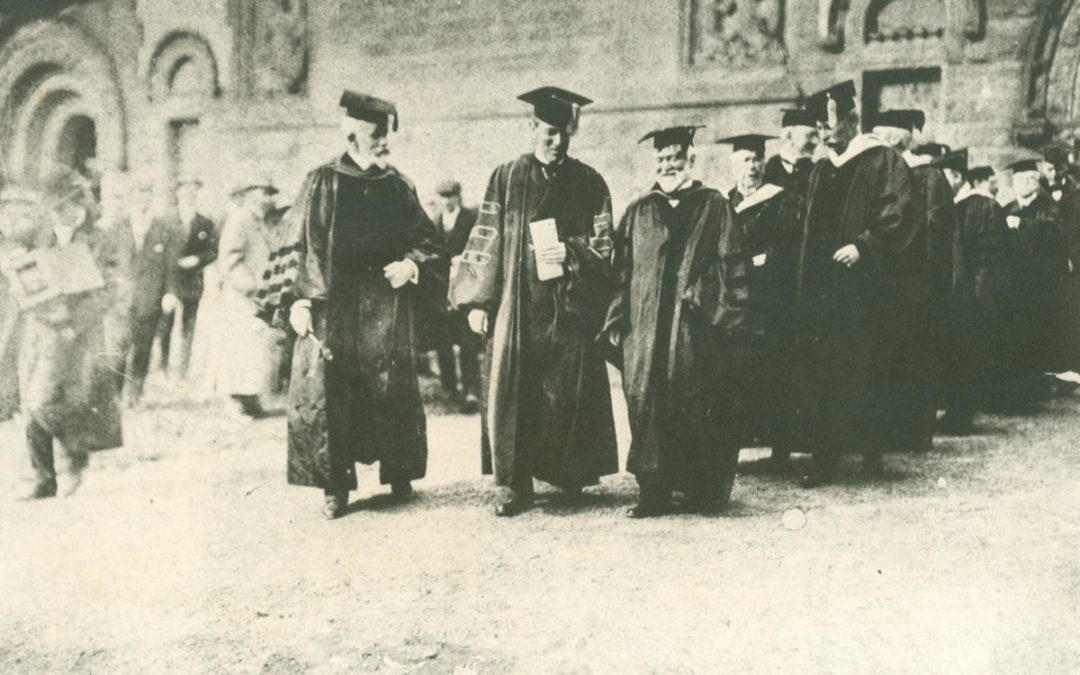
Sexual Abuse
Sexual assault on college campuses is almost a taboo subject in the academic world. You won’t see the following headline on any college brochure or web site. “You have a 1 in 4 chance of being sexually assaulted if you come here” . It’s not specific to any one college, but it tends to be a common estimate for the sexual assaults. It’s also terrible from a PR perspective. On the one hand colleges must report sexual assaults and other campus violence annually to the Federal Government. But on the other hand, that kind of transparency doesn’t do much to attract new students. In some cases colleges are doing everything possible to make the numbers they report as low as possible.
Accused of rape = expulsion
It makes for a great heading, but is it a great policy? Colleges often operate under their own rules when it comes to crimes. Some schools automatically turn over cases to local police, others prefer a disciplinary committee. Police reports generally ensure due process, but they attract negative attention to the school. Disciplinary committees may take a one size fits all approach that may or may not take state laws into account. They do take into account the stupidity of 18-22 year olds. They try to make decisions that don’t need to follow someone for the rest of their life.
Victim claims are often dismissed in favor of the greater good of the college. Also, some accused are expelled based on a lower standard of evidence than if it was handled by the police. And what about those police reports? In many cases, sexual assault cases handled through a disciplinary committee may never make it’s way to the police crime stats. Translation – lower numbers in the crimes reported area.
Through the Looking Glass
Colleges aren’t really part of the real world. Most of us that have survived the experience will look back and realize that we could not live like that today. Aside from the parties, all nighters and wearing pajamas to class, the rules on college campuses can be equally distorted. Sometimes in sexual assault cases, things happen at colleges that just make you go – huh!
Case in point is the recent lawsuit at the University of Kentucky. A professor recently resigned over sexual assault allegations. The victims demanded the school paper release the case details. The attorney general wants the details as well. The university is currently suing their newspaper to block the release of the information. They claim that they are preserving the rights of the victims. (These were the people that wanted the information released in the first place.) Again, back to the PR vs transparency issue.
http://www.cnn.com/2016/09/01/us/university-of-kentucky-sues-student-newspaper-sexual-assault/index.html
Kimberly Theidon claims she was denied tenure by Harvard University. She will lose her job there due to her advocacy for victims of sexual violence at her school.
http://www.huffingtonpost.com/2014/04/17/harvard-retaliation-professor-tenure_n_5159995.html
One of the biggest college sex abuse scandals has been at Occidental College. Students and staff are often reprimanded or fired for speaking out about the school’s policy on sexual misconduct.
http://jezebel.com/colleges-silence-and-fire-faculty-who-speak-out-about-r-1586169489
http://www.cnn.com/2015/11/19/us/whistleblowers-campus-rape-
Star Trek Logic
Probably the most famous line from a Star Trek movie is Spock saying, “The good of the many outweighs the good of the few”. It is a point of illogic that the movie goes on to show that the opposite is true. Many schools haven’t figured that out. There are numerous incidents of schools sacrificing both students and staff to preserve the institution. What’s interesting is that some schools are as likely to dismiss a victim complaint as they are to expel an accused student just to make the problem go away.
The irony is that while they think they are preserving the integrity of the organization, in fact they are doing just the opposite. Schools need to deal with the pain of the negative activities within their population as openly as possible. Those who fail to learn from history are destined to repeat it.
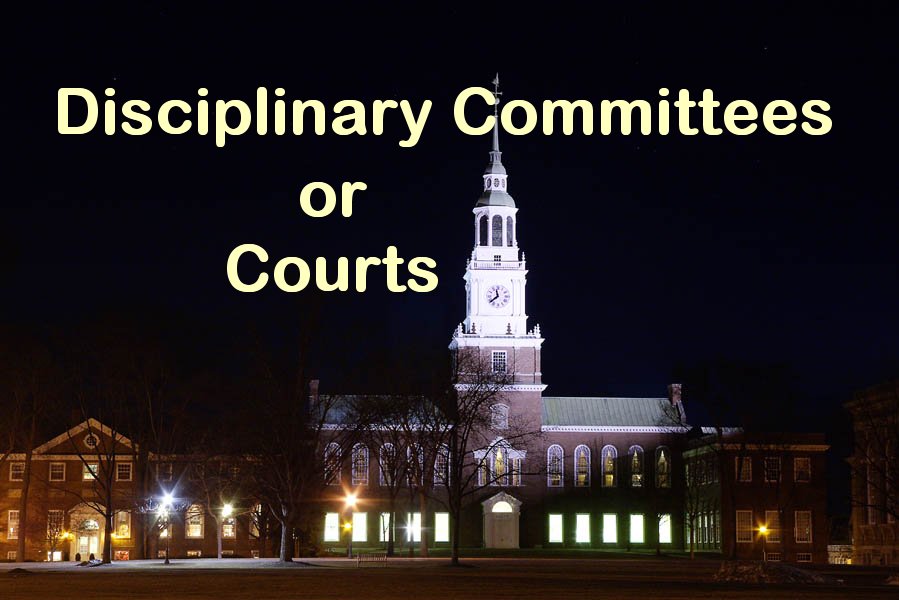
Sexual Assault
There’s an interesting debate going on at campuses around the country. What to do with sexual assaults? Is it simply a matter of referring all sexual assaults to the police, or should they be managed internally by a college disciplinary committee? It’s an issue that gets pretty complicated the more you talk about. There are actually problems with both approaches.
(more…)
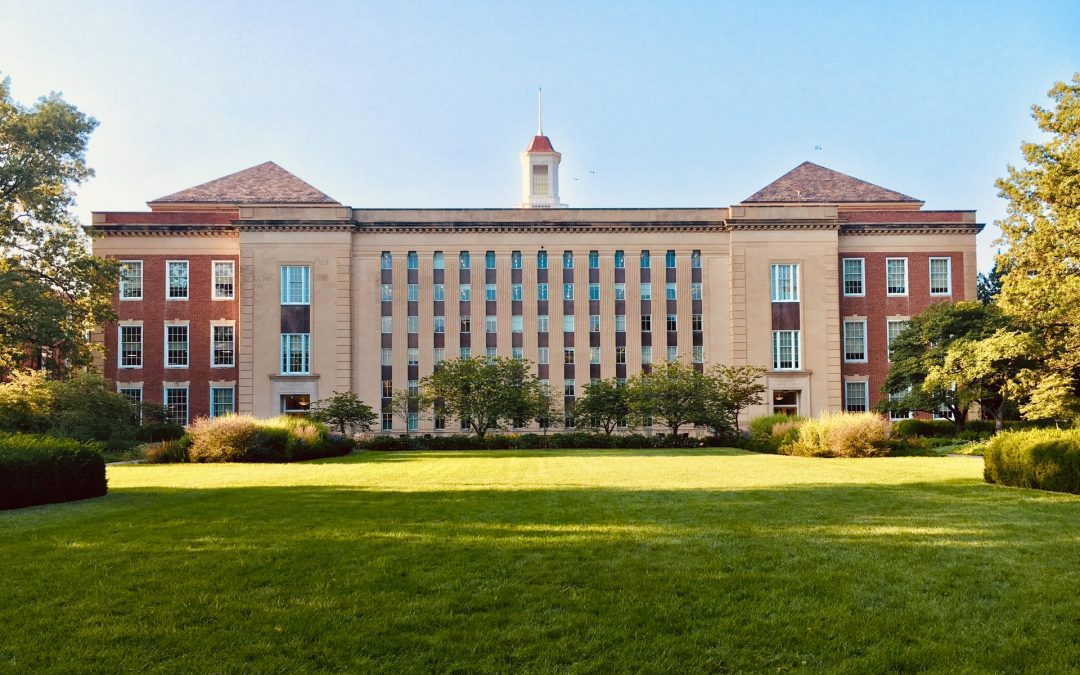
Sexual Assault
The University of Virginia is the latest college to be in the spotlight over rape on campus. Starting with the brutal rape of Hannah Graham, the media lens was already pointed at UVA. Then the Rolling Stones article about a gang rape came out that even Rolling Stones admitted contained factual errors. Now you have a situation where inaccuracies in an article bring into question the accuracy of the original report. It’s not fair. The University of Virginia is now a culturally divided campus with verbal and physical attacks against the accused and the accuser. So what’s the solution? That really depends on what the problem is.
Colleges are Artificial
Throughout most of human history education has been a community endeavor. It starts with parent to child, may evolve to a centralized community model, and often evolved into an individual mentor/apprenticeship arrangement. There was a continuum and logical path to follow through the community. Then a few hundred years ago the modern college emerged. It makes sense for a lot of reasons – specialization, consistency of information, ability to develop expertise, focus, etc. It also creates some problems in the process. You are creating a large same same age population which operates by it’s own set of rules that are different than the community that all of it’s members come from. Add in the dimensions of personal freedom, free flowing drugs and alcohol, sexual discovery, and normal social rules are going to be subverted.
Fraternities and sororities add their own dimensions to the problem. Whether it is a college, prison, or the military, same sex environments create abhorrent behavior. Just read Lord of the Flies and you will see the negative potential of homogeneous groups. Anyone who has been a member (excluding prison) will also argue the positive aspects – myself included. I have some great memories from college and the military, but I have more than a few stories of the negatives as well. Everything is magnified – the good and the bad. In normal communities, there are rules and checks and balances that level things out. College students sort of make up their own rules, and now the problems are starting to come to light.
30 Years of Problems
The problems have probably always been there but we only really get a glimpse if we are in it ourselves. As the parent of a college student I get to see that things haven’t changed that much in 30 years. Most stories of campus rape will reference the Clery Act which covers crime reporting requirements for colleges. This was the first comprehensive step to address the problem of crime on college campuses. While I’ve covered this in other posts, I went to school with Jeanne Clery and remember when she was murdered. Sadly I remember more about what happened after than about Jeanne herself. The case was atypical for a variety of reasons, but it set the stage for change. Insurance companies have done a lot to curb some of the problems of college environments by including denial of coverage clauses around serving minors and other activities. Unfortunately, the campus often adjusts and eventually works around the new rules.
Fixing the Problem of Rape on Campus
Most schools have some form of a zero tolerance program when it comes to sexual assault on campus. That doesn’t mean they have zero problems, or are going to any time soon. I would suggest if a school has no problems with rape on campus, it isn’t looking very hard. Even if we cut the current problem in half, it would be a huge improvement. So what are some things that will improve the situation?
Mandatory Education on Sexual Abuse – Sexual abuse exists largely because of a lack of education. I believe all students and staff should be required to attend at least an hour annually regarding campus sexual abuse. Everyone should be educated on what the risks are, and what to do if it happens. Students should also know what behaviors are considered offenses and what is considered consent.
Fix the Process
Improve the reporting – investigation – discipline process – Many schools treat sexual assaults as inconvenient black marks that hinder recruiting. There are more than a few cases where schools tried to make the problem go away, or they make it so difficult to follow through on a sexual assault report that many victims simply give up. As an example, the University of Virginia last year had 38 reports of sexual assault. 9 o f these reports were formally investigated and only 4 were followed all the way through. There may be a variety of valid reasons for this, but I’m guessing the process being difficult for victims is a contributing factor. Sexual abuse is already under-reported so making it difficult to report only makes the problem worse. Students should know in advance how the process works and be provided support through the process so they don’t get frustrated and drop it. Colleges should invest in victim case management software to improve the process for everyone. It makes for a better experience for victim, helps prevent Title IX violations, and provides insight into what is happening from report initiation to report closure.
Building a Foundation
Help victims transition their experience from burden to foundation – sexual abuse is like a virus because it can be years from contact until symptoms appear. Also people often suffer for years before getting help. It is a burden that many people suffer silently because of shame, they felt they waited too long to say anything, or other reasons. Schools should help victims reframe their experience. It may still be the worst thing that ever happened in your life, but it can be the foundation or a burden. Part of this is choice, and part of it is being shown the possibility. The worst experiences in the world create extraordinary character. Look at Victor Frankl, Nelson Mandela, Oprah, and others who have endured extreme hardship and abuse. The bad stuff in their life never went away, they just positioned themselves above it rather than under it. It’s not an easy transition, but anyone can learn to do it. Since we go to college to learn, this is probably one of the most important lessons anyone can learn.
Let us know if we can help you dealing with your family’s sexual abuse situation. For ideas to get started please check out our book on what to do during the early days after disclosure.





